How Induction Shaft Hardening Machine Can Improve Your Manufacturing Process
In modern manufacturing, maintaining high quality while minimizing production time is essential to remain competitive. One critical area that can significantly impact your manufacturing process is the hardening of shafts. The traditional method of hardening shafts has limitations such as uneven hardness and distortion. However, the introduction of Induction Shaft Hardening machines has revolutionized the process and provided a solution to these challenges.
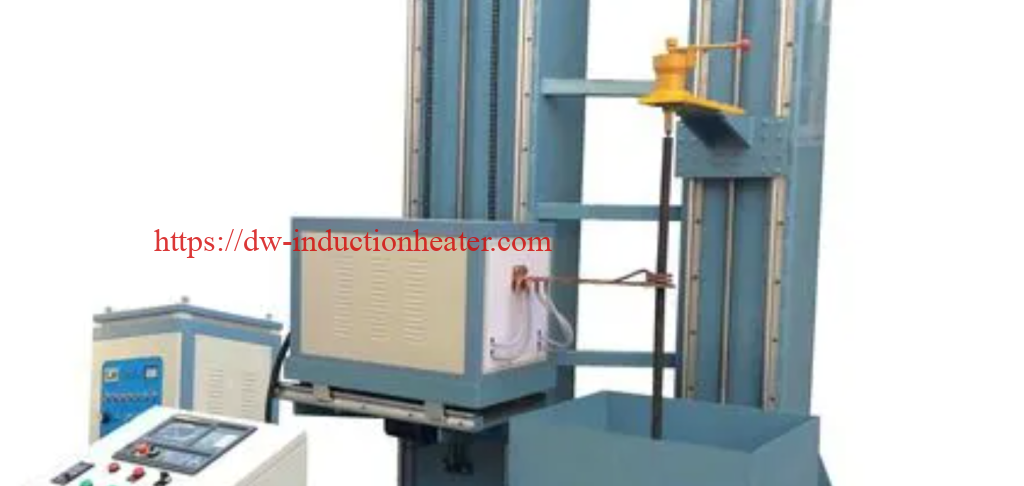
In this blog post, we will discuss how an
Induction Shaft Hardening Machine can improve your manufacturing process. We will explore the benefits of this machine, including how it increases productivity, ensures uniform hardness, and reduces distortion, ultimately leading to higher quality products and more satisfied customers.
1. What is an Induction Shaft Hardening Machine?
If you're in the manufacturing industry, you may have heard of the induction shaft hardening machine. But what exactly is it? An induction shaft hardening machine is a specialized tool that uses electromagnetic induction to heat up the surface of a metal shaft. This heat treatment process hardens the surface of the shaft, making it more durable and resistant to wear and tear. This process is commonly used in the production of automotive parts, aerospace components, and industrial machinery. The machine uses a high-frequency generator to create an electric current in a copper coil. This generates a magnetic field which causes the metal to heat up. The coil is then moved along the length of the shaft, ensuring that the entire surface is evenly heated. Once the heating process is complete, the shaft is quickly cooled, further hardening the surface. The induction shaft hardening machine is a valuable tool for manufacturers looking to improve the quality of their products and increase their efficiency.
2. Benefits of using an Induction Shaft Hardening Machine
An
Induction Shaft Hardening Machine is a type of equipment that is designed to improve your manufacturing process by hardening the surface of a shaft. This process can provide a number of benefits to your manufacturing process. One of the primary benefits of using an Induction Shaft Hardening Machine is that it can increase the strength and durability of your products.
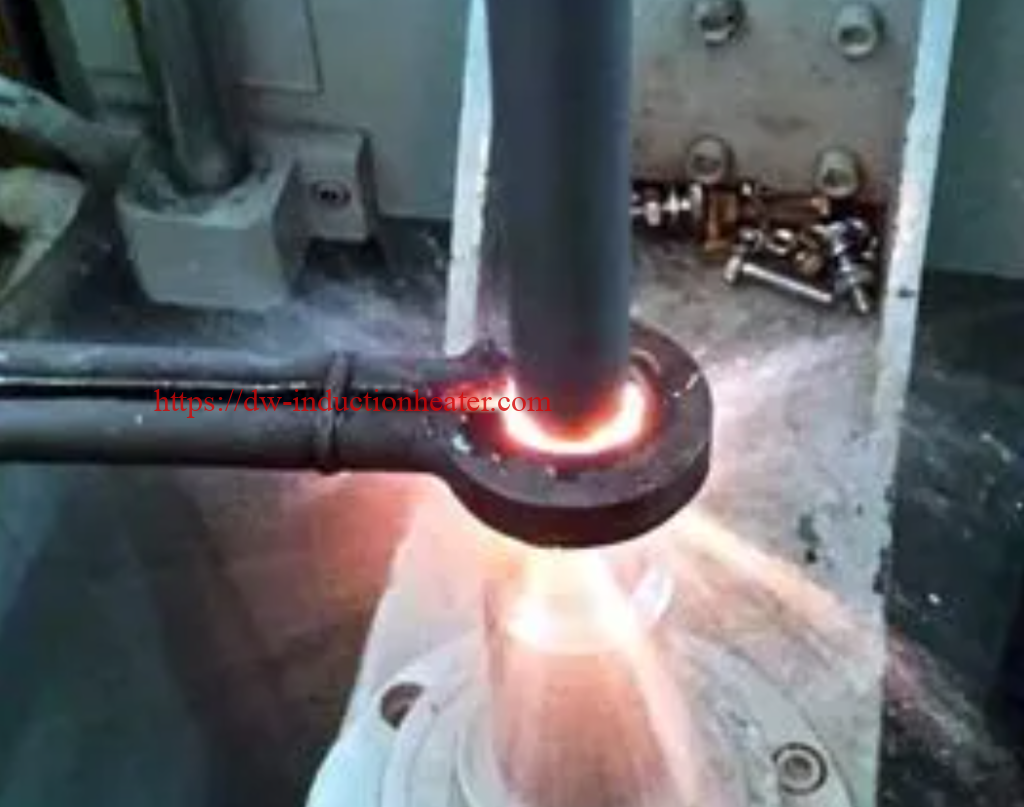
When you harden the surface of a shaft, it becomes less prone to wear and tear, which can help to extend the life of your products. This can be especially important in industries where durability is critical, such as aerospace or automotive manufacturing. Another benefit of using an Induction Shaft Hardening Machine is that it can improve the overall efficiency of your manufacturing process. By hardening the surface of a shaft, you can reduce the amount of time and resources that are required to maintain and repair your products. Additionally, using an Induction Shaft Hardening Machine can help you to save money on production costs by reducing the need for expensive materials or parts. Overall, if you are looking to improve your manufacturing process, an Induction Shaft Hardening Machine can be a valuable investment that can provide a number of benefits to your business.
3. How to integrate an Induction Shaft Hardening Machine into your manufacturing process
Integrating an Induction Shaft Hardening Machine into your manufacturing process is a great way to improve your overall efficiency and production. The first step is to determine the specific needs of your manufacturing process. Once you have identified the types of shafts that you need to harden and the production volume, you can then select the appropriate Induction Shaft Hardening Machine that meets your requirements. When integrating an Induction Shaft Hardening Machine, it is important to consider the space and layout of your manufacturing facility.
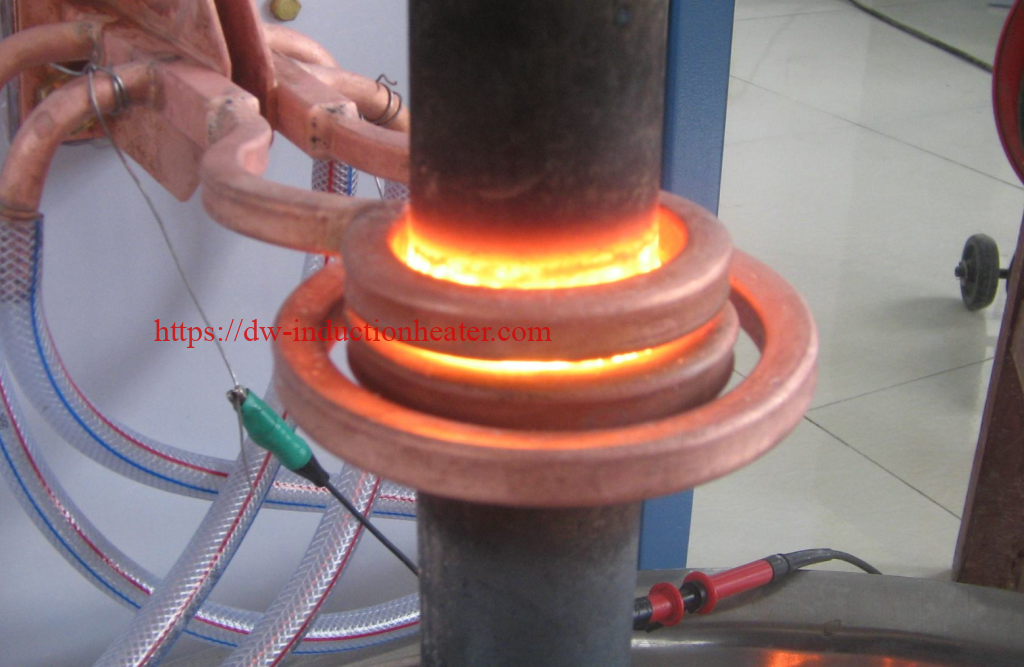
You will need to make sure that the machine can be easily integrated into your existing production line and that there is enough room for the machine and its accessories. Another important consideration is training your staff on how to use the machine properly. Operators must be trained on the correct operating procedures and safety protocols. This will ensure that the machine is operated safely, efficiently, and at maximum capacity. Finally, it is essential to establish a regular maintenance schedule for your Induction Shaft Hardening Machine. This will help to ensure that it is always in top working condition and will minimize the risk of downtime and costly repairs. Regular maintenance also prolongs the life of the machine, ensuring that it provides long-term value to your manufacturing process.
4. Real-world applications of Induction Shaft Hardening Machines
Induction Shaft Hardening Machines are gaining popularity in the manufacturing industry, thanks to their ability to improve the manufacturing process. These machines have a wide range of real-world applications, making them an essential part of any manufacturing process that involves shafts.
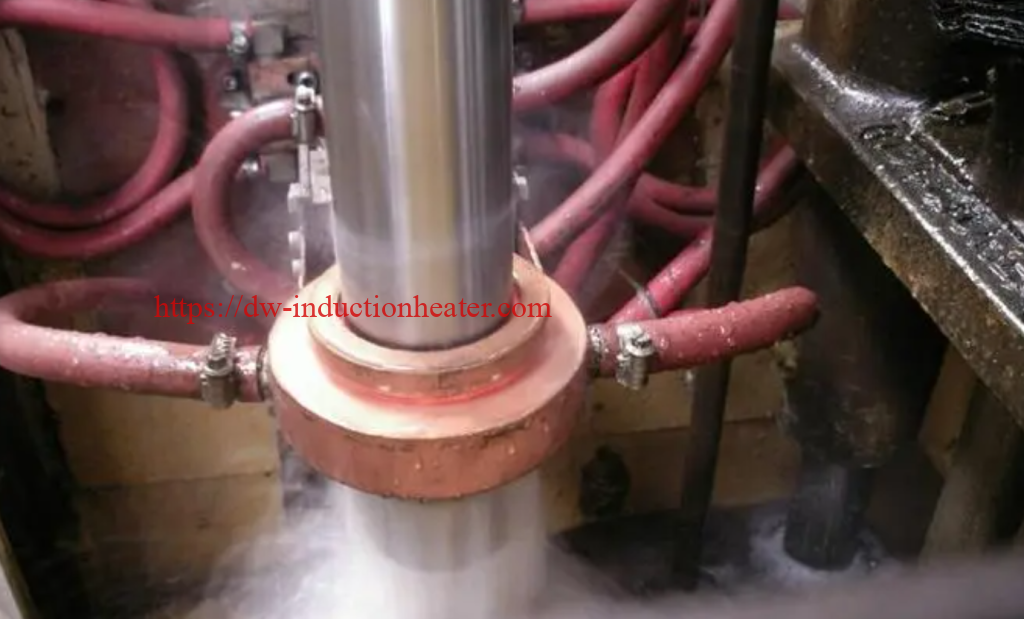
For instance, they have been used in the automobile industry to harden gears, shafts, and other components. This process provides a durable surface that withstands wear and tear, making the components more reliable. Induction Shaft Hardening Machines are also used in the aerospace industry to harden the shafts of jet engines. This is vital because the engine's shafts must endure extreme temperatures and high pressure. Another example of real-world applications of Induction Shaft Hardening Machines is in the oil and gas industry. Here, the machines are used to harden the shafts of drilling equipment to withstand the harsh conditions of deep-sea drilling. The machines can also be used in the production of wind turbines to harden the shafts that support the blades. This ensures that the turbines can withstand the high winds that they are exposed to.
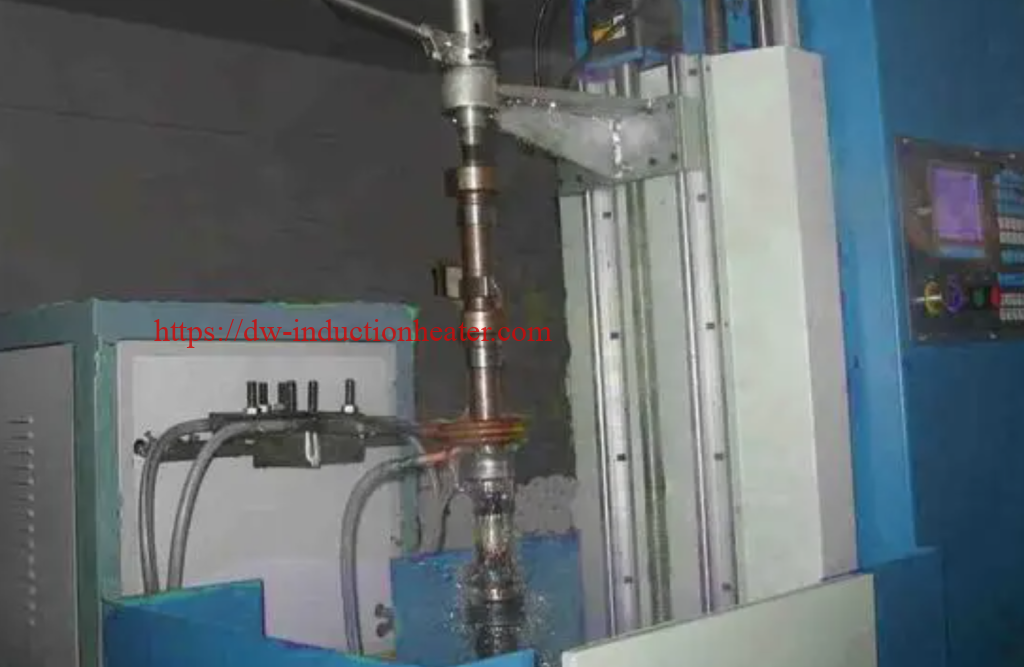
In conclusion, Induction shaft hardening machine is a type of industrial equipment used to heat and harden the surface of metal shafts. It uses
electromagnetic induction to create an alternating current in a coil, which generates a magnetic field. The metal shaft is then placed inside the coil, where it is heated by the magnetic field. This process can be used to harden the surface of the shaft while leaving the core of the metal unaffected. Induction shaft hardening machines are commonly used in manufacturing and engineering industries where tough and durable metal shafts are required. These machines are available in various sizes and capacities to suit different types of applications.
 In this blog post, we will discuss how an Induction Shaft Hardening Machine can improve your manufacturing process. We will explore the benefits of this machine, including how it increases productivity, ensures uniform hardness, and reduces distortion, ultimately leading to higher quality products and more satisfied customers.
In this blog post, we will discuss how an Induction Shaft Hardening Machine can improve your manufacturing process. We will explore the benefits of this machine, including how it increases productivity, ensures uniform hardness, and reduces distortion, ultimately leading to higher quality products and more satisfied customers.
 When you harden the surface of a shaft, it becomes less prone to wear and tear, which can help to extend the life of your products. This can be especially important in industries where durability is critical, such as aerospace or automotive manufacturing. Another benefit of using an Induction Shaft Hardening Machine is that it can improve the overall efficiency of your manufacturing process. By hardening the surface of a shaft, you can reduce the amount of time and resources that are required to maintain and repair your products. Additionally, using an Induction Shaft Hardening Machine can help you to save money on production costs by reducing the need for expensive materials or parts. Overall, if you are looking to improve your manufacturing process, an Induction Shaft Hardening Machine can be a valuable investment that can provide a number of benefits to your business.
When you harden the surface of a shaft, it becomes less prone to wear and tear, which can help to extend the life of your products. This can be especially important in industries where durability is critical, such as aerospace or automotive manufacturing. Another benefit of using an Induction Shaft Hardening Machine is that it can improve the overall efficiency of your manufacturing process. By hardening the surface of a shaft, you can reduce the amount of time and resources that are required to maintain and repair your products. Additionally, using an Induction Shaft Hardening Machine can help you to save money on production costs by reducing the need for expensive materials or parts. Overall, if you are looking to improve your manufacturing process, an Induction Shaft Hardening Machine can be a valuable investment that can provide a number of benefits to your business.
 You will need to make sure that the machine can be easily integrated into your existing production line and that there is enough room for the machine and its accessories. Another important consideration is training your staff on how to use the machine properly. Operators must be trained on the correct operating procedures and safety protocols. This will ensure that the machine is operated safely, efficiently, and at maximum capacity. Finally, it is essential to establish a regular maintenance schedule for your Induction Shaft Hardening Machine. This will help to ensure that it is always in top working condition and will minimize the risk of downtime and costly repairs. Regular maintenance also prolongs the life of the machine, ensuring that it provides long-term value to your manufacturing process.
You will need to make sure that the machine can be easily integrated into your existing production line and that there is enough room for the machine and its accessories. Another important consideration is training your staff on how to use the machine properly. Operators must be trained on the correct operating procedures and safety protocols. This will ensure that the machine is operated safely, efficiently, and at maximum capacity. Finally, it is essential to establish a regular maintenance schedule for your Induction Shaft Hardening Machine. This will help to ensure that it is always in top working condition and will minimize the risk of downtime and costly repairs. Regular maintenance also prolongs the life of the machine, ensuring that it provides long-term value to your manufacturing process.
 For instance, they have been used in the automobile industry to harden gears, shafts, and other components. This process provides a durable surface that withstands wear and tear, making the components more reliable. Induction Shaft Hardening Machines are also used in the aerospace industry to harden the shafts of jet engines. This is vital because the engine's shafts must endure extreme temperatures and high pressure. Another example of real-world applications of Induction Shaft Hardening Machines is in the oil and gas industry. Here, the machines are used to harden the shafts of drilling equipment to withstand the harsh conditions of deep-sea drilling. The machines can also be used in the production of wind turbines to harden the shafts that support the blades. This ensures that the turbines can withstand the high winds that they are exposed to.
For instance, they have been used in the automobile industry to harden gears, shafts, and other components. This process provides a durable surface that withstands wear and tear, making the components more reliable. Induction Shaft Hardening Machines are also used in the aerospace industry to harden the shafts of jet engines. This is vital because the engine's shafts must endure extreme temperatures and high pressure. Another example of real-world applications of Induction Shaft Hardening Machines is in the oil and gas industry. Here, the machines are used to harden the shafts of drilling equipment to withstand the harsh conditions of deep-sea drilling. The machines can also be used in the production of wind turbines to harden the shafts that support the blades. This ensures that the turbines can withstand the high winds that they are exposed to.
 In conclusion, Induction shaft hardening machine is a type of industrial equipment used to heat and harden the surface of metal shafts. It uses electromagnetic induction to create an alternating current in a coil, which generates a magnetic field. The metal shaft is then placed inside the coil, where it is heated by the magnetic field. This process can be used to harden the surface of the shaft while leaving the core of the metal unaffected. Induction shaft hardening machines are commonly used in manufacturing and engineering industries where tough and durable metal shafts are required. These machines are available in various sizes and capacities to suit different types of applications.
In conclusion, Induction shaft hardening machine is a type of industrial equipment used to heat and harden the surface of metal shafts. It uses electromagnetic induction to create an alternating current in a coil, which generates a magnetic field. The metal shaft is then placed inside the coil, where it is heated by the magnetic field. This process can be used to harden the surface of the shaft while leaving the core of the metal unaffected. Induction shaft hardening machines are commonly used in manufacturing and engineering industries where tough and durable metal shafts are required. These machines are available in various sizes and capacities to suit different types of applications.
